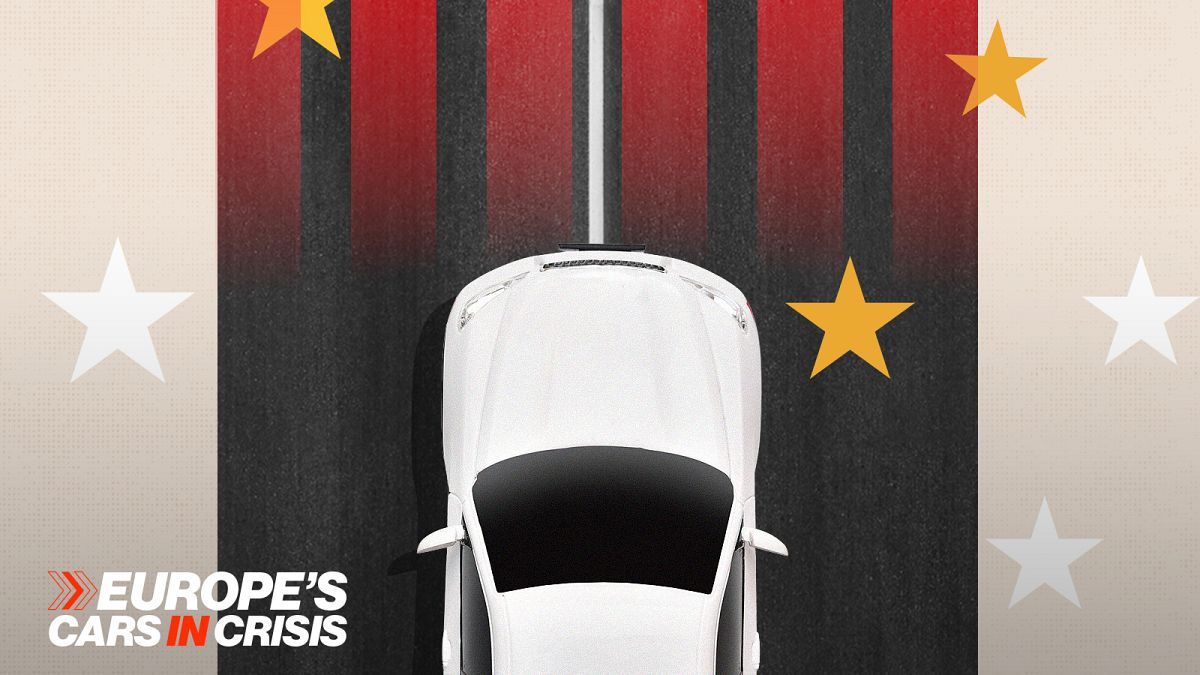Advertising
The automotive industry of Europe is under the pressure of Trump’s duties, strict competition from China and expensive requirements for the adoption of electric vehicles.
In the sector, which represents more than 7% of the EU GDP and occupies more than 13 million people, faces growing pressure in order to remain competitive, absorbing the financial burden of the transition to cleaner mobility.
The following steps of the EU, by solving these problems, will be crucial for the formation of a future automobile sector, a key industry for the region.
EU car sales: numbers
According to the new data of the European Union of automobile manufacturers (ACEA), the new registrations of the EU in the first seven months of 2025 decreased by 0.7% compared to the same period last year.
EU car sales increased by 7.4% in July 2025, while Volkswagen and Renault are growing, while Stellantis has fallen. Tesla, on the other hand, saw how her sales fall by 40.2%.
In the first seven months of 2025, more than a million electric vehicles were registered in the EU.
According to ACEA, the hybrid plugin registered the strongest growth since January 2023, while batteries recorded the greatest increase since August last year.
Three of the four largest EU markets, together with more than 60%of the battery electricity registration, registered profit in the first seven months of 2025, led by Germany (+38.4%), Belgium (+17.6%) and the Netherlands (+6.5%).
Registration on the battery, a hybrid and plug -in car increased by 39.1%, by 56.9% and 14.3%, respectively, accounts for 59.8% of the EU records, compared with 51.1% in July 2024.
Tesla cars in Europe fell by 40.2% on an annual basis, which reduced the market share to 0.7% from 1.3%.
Meanwhile, Chinese Byd tripled its sales, reaching 1.2% of the market and for the first time in the area in the area.
German brands are one of the manufacturers of cars that are more exposed to protective commercial policy, feeling pressure, since the increase in duties already increases costs throughout the supply chain.
Volkswagen, in particular, is the task of reducing excessive production capacities of factories and reorganization costs in order to keep up with Chinese competitors such as BYD.
“We welcome competition because it promotes innovation,” Volkswagen representative told Euronews.
“It is also obvious that Chinese competitors in Europe should also adapt to specific market requirements and cannot accept Chinese technologies in the ratio of 1: 1,” the representative said.
The policy of new duties led to the uncertainty of European car manufacturers, allowing incompetent forecasting of future costs, stability of the supply chain or market reaction.
Volkswagen Group welcomed the recent joint statement of the EU and the US government.
German car manufacturers suffered from President Trump by 27.5% on European car manufacturers in April. Although these duties have since been reduced to 15%since then, the reduced rate has not yet entered into force.
The team wants the US administration to dismantle the clouds surrounding the industry:
“In order to guarantee 15% of the prospects for duties for EU imports from the United States with retroactive authorities from August 1, the US administration should now begin the necessary administrative procedures, since the EU commission has fulfilled the necessary requirements for retirement. This is the only way to avoid more burden for companies, ”the representative said.
